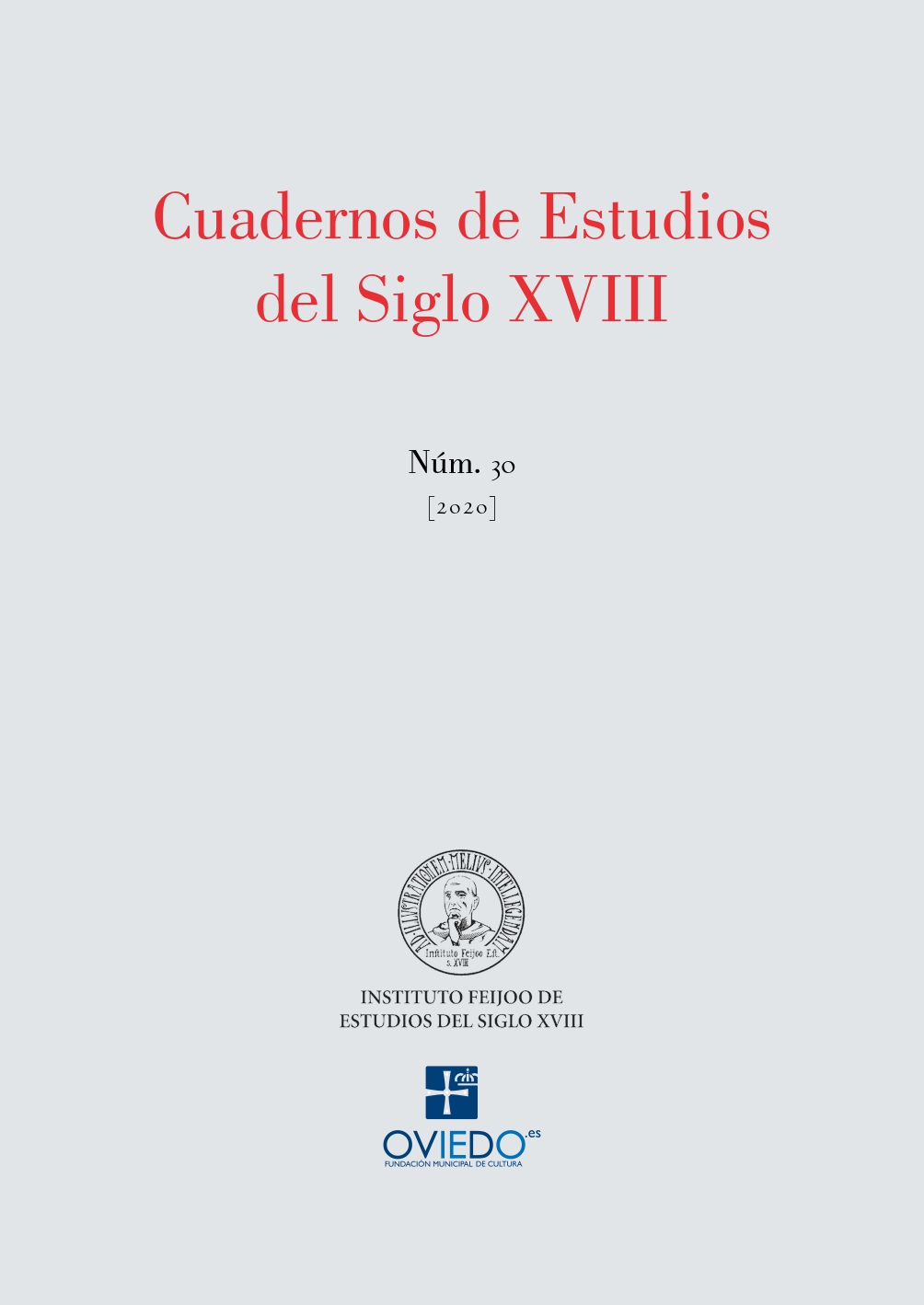Abstract
Since the end of 17th century, the Spanish growing use of "erudite" and "erudition", often associated with the idea of criticism, means the choice of new ways of introduction to knowledge. Would it be convenient and useful to speak of an "erudite movement" as a constituent of the first Enlightenment? It is inspired by Mabillon and Saint-Maur, by Italian historians, by Nicolás Antonio, or perhaps by Vives. His actors work to communicate to a growing public their curiosity for a knowledge based on authentic historical documents and facts.
This work is licensed under a Creative Commons Attribution-NonCommercial-NoDerivatives 4.0 International License.
Copyright (c) 2020 Cuadernos de Estudios del Siglo XVIII
Downloads
Download data is not yet available.

